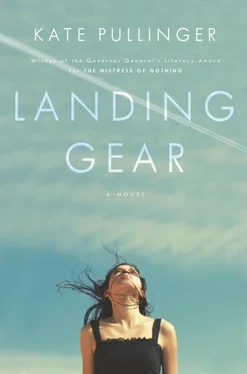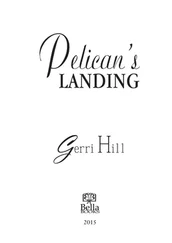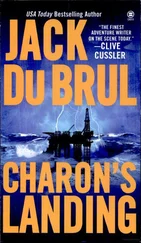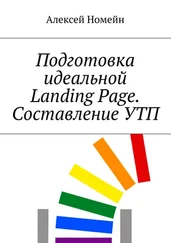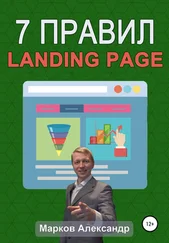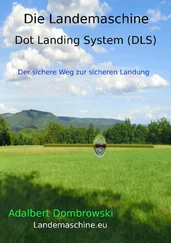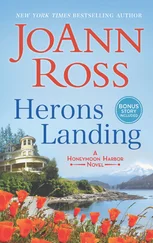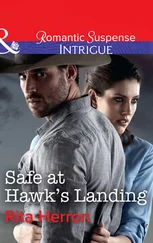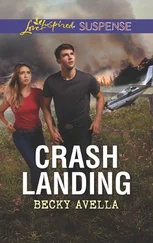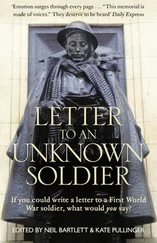Jack knew that he was lucky and that he had nothing to escape from, with his nice house, his kind father, and his mother who had nothing to do apart from worry about him. He knew he was better off than most. But fuck it. Being better off was not what mattered at the end of the day.
What did matter? Jack didn’t know. Or rather, he didn’t know yet. Sometimes he felt he had everything figured out, but then he realized he was mistaken. He knew things, of course, you can’t get to fourteen without having learned a bunch of stuff, but he felt he didn’t know anything important.
Now that it was spring, Dukes was even more appealing as the grass greened up and the trees began to put on leaves. Today’s plan was to meet at twelve and head over to Dukes for the afternoon. On the high street he found his friends hanging out in front of the bus stop. They’d already pooled their cash and sent Louise to the shop behind the mini-cab stand where, rumour had it, girls could buy beer if they stuck out their boobs and were wearing lipstick.
“Louise doesn’t need to stick out her boobs,” said Frank, “they stick out enough already,” and he laughed at his joke.
“Shut up, Frank,” said Ruby.
Jack said, “Yeah, shut up, Frank.”
“Ooh,” said Frank, “Ruby has an echo. Little Echo Boy.”
Jack thought about hitting Frank. He felt himself go red and he turned away from the group, as though he’d noticed something interesting across the street. Ruby was already ignoring them both, talking to her friend Saira, and Frank asked Jack if he had bought FIFA 2010 yet, which Jack knew was his way of apologizing. Louise came skittering up the road, she’d managed to buy two cans of beer, and they got onto the bus and clambered upstairs, leery and shouty and full of themselves. At these times Jack felt self-consciously teenaged, like being a teenager was the most obvious, scripted, clichéd way of being in the world. Frank pushed him and he kicked Frank, and the look of horror in the old ladies’ eyes made him cringe on the inside, but he laughed loudly and glanced to see if Ruby was watching. She wasn’t.
At Dukes, the bandstand was already occupied by a bunch of kids from another school, older and rougher looking, so they stayed well clear and moved over to the common instead. They opened the cans of beer and shared them round. Jack still wasn’t sure about the taste, but at least he’d managed to move on from the massive involuntary shudders that used to overtake him whenever one of his parents offered him a sip. He liked the way the alcohol made him feel, how after a few glugs the band that was wound tight around his guts loosened a little, and the fear he had of saying or doing something wrong in front of his friends began to ease.
Today Ruby was sitting next to him and he was conscious of her leg touching his, but he could see that her other leg was touching Frank’s. After they’d been there for a while and drunk the beer and discussed how much they hated their teachers and what a total plonker Mr. Evans was, and how Miss Gerhart showed too much crepey cleavage—“Her skin, man,” said Frank, his face screwed tight with distaste, “it’s like cowhide.”
“Eww,” said everyone else. Jack pressed his back against the log he was leaning on, and looked up at the sky. That’s when he realized.
“No planes,” he said.
“What—,” Frank started with what Jack could hear was sarcasm, but he held up his hand and his gesture actually worked. Frank stopped speaking.
“Listen,” said Jack, and he pointed upward. “No planes.”
And they all looked up and they all remained silent, and for a moment Jack thought that, together, they’d seen God, but of course it was only the monumental shock of noticing the blue silent sky. Sometimes at Dukes the planes seemed so low that Jack felt that if he jumped high enough or stood on Frank’s shoulders, he could reach up and brush his fingers along a plane’s silvery undercarriage. But today the sky was empty.
“Freaky,” said Frank after a while, and a collective shudder passed through them.
“A volcano,” said Ruby.
“What?” asked Frank.
“A volcano in Iceland.”
“This is what it will be like when we run out of oil,” said Jack.
“He’s seen the future, man,” said Frank, “and it’s bleak.”
Ruby stood up as though she’d suddenly remembered she needed to leave. Jack began to stand as well but she pushed him back down, saying, “Wait, I’ve got something to show you.” She ran out onto the damp grass and did a cartwheel.
Frank shouted, “The midget performs for us!”
They laughed, Ruby as well. It was true she was tiny, she hadn’t grown at all over the past two, nearly three years, since they started secondary school, whereas Jack was growing so rapidly his friends claimed they could see him sprouting. Frank said he was doing a photography project, taking a picture of Jack every day and then running them together to create one of those YouTube time-lapse videos so that everyone in the world could see what a freak Jack was.
Ruby stood on the grass in front of them and shouted “Oi!” They stopped talking and looked at her obediently.
The silent sky brought with it a sense of occasion. Ruby sat down cross-legged. She jammed her hand in the pocket of her jacket and pulled out a sandwich bag full of marijuana.
At least, that’s what Jack guessed it was, given that he had never seen a bag of marijuana before in real life. He corrected himself: “draw,” that was what you were supposed to call it. Draw. She held it over her head and waggled it back and forth. “A gift from my big brother. A taster. For free.”
For once, no one knew what to say.
“His evil plan,” she added, “is to get you all hooked so that you become his devoted customers forever more.”
Pause. Then Frank spoke up. “Does he offer some kind of loyalty scheme?”
Moments later, as Jack inhaled for the first time through a taut mix of fear, desire and curiosity, he thought, am I doing this because there are no planes? Or would I be doing this anyway?
Work was frantic, everyone bursting with this weird news story, watching the satellite images as the ash cloud morphed, getting bigger and bigger, stretching south and east, covering more and more of Europe. Several reporters and presenters were away because of the school holiday, and with most European airspace shut, anyone abroad would now have difficulty returning home. With a jolt, Harriet realized that this presented her with an opportunity, a way to act on her desire, long dormant but still present: to get back into reporting after her years and years of continuity announcements, program links and news reading. In her current job she did a bit of everything—writing the news, reading it, editing together packages—that was how local radio worked. But here was a chance to get back out there in the field once again, away from the studio.
Everyone was startled by the absence of planes over London that morning. Five airports serviced the city, including, to the north, Luton, to the east, Stansted and London City, and in the south, Gatwick. At Heathrow the planes land and take off every forty-five seconds, from five in the morning until midnight, and no one who lived in West London failed to be anything other than amazed by the effect of the planes stopping. Richmond, where Harriet lived, was right there, just a few kilometres from the airport, right under the flight path.
Harriet was not good at recognizing professional opportunities when they came her way. She never noticed the door opening until after it had shut again. It began to happen when she was young and starting out in her career, and it happened when she returned to work after Jack was born; her chance departed before she noticed it had arrived. She had never intended to stay at the local radio news desk for all this time, but she had. And today the opportunity was right there in front of her. Harriet had done her research. This was the local story, and the station did not have enough reporters to cover it.
Читать дальше
